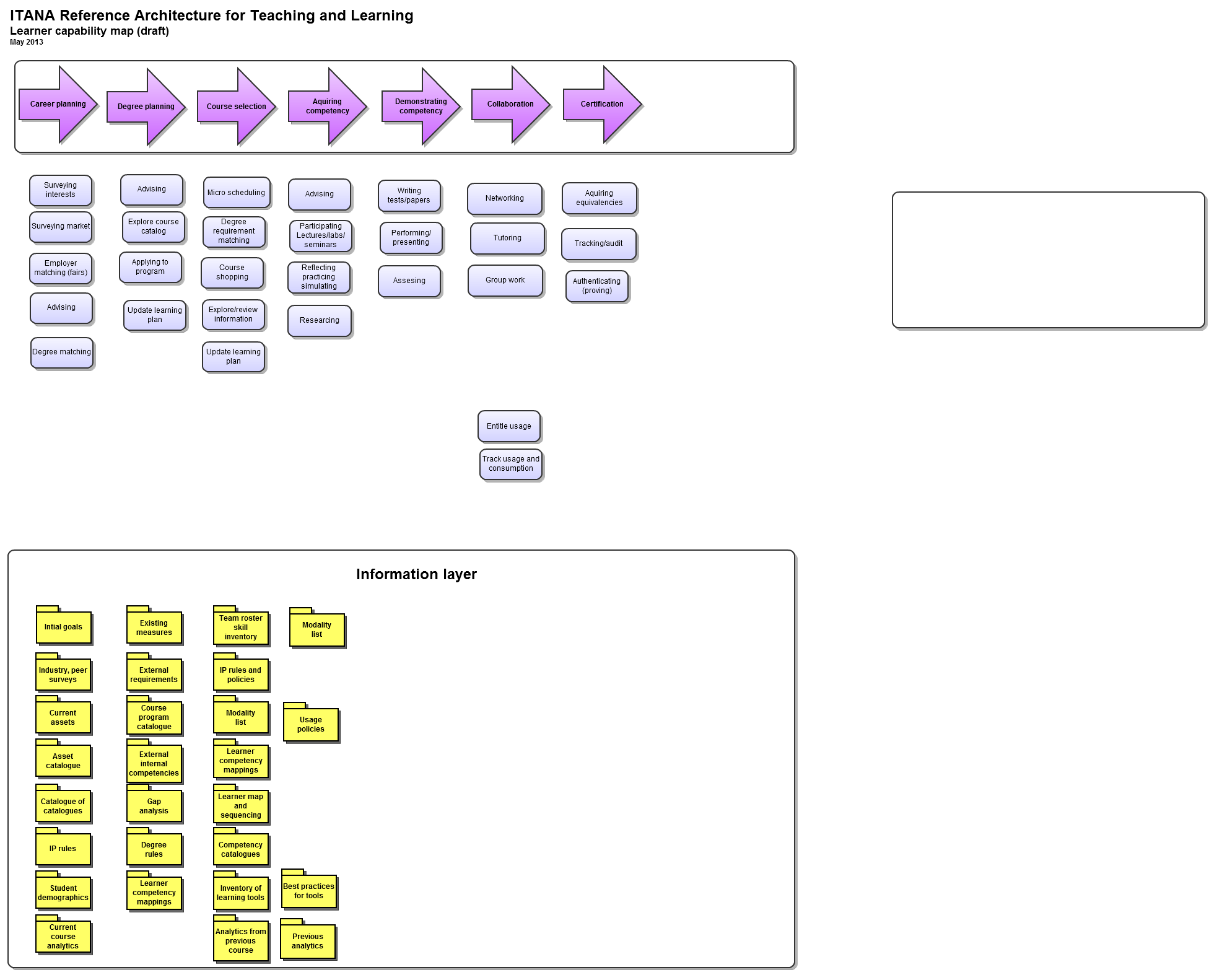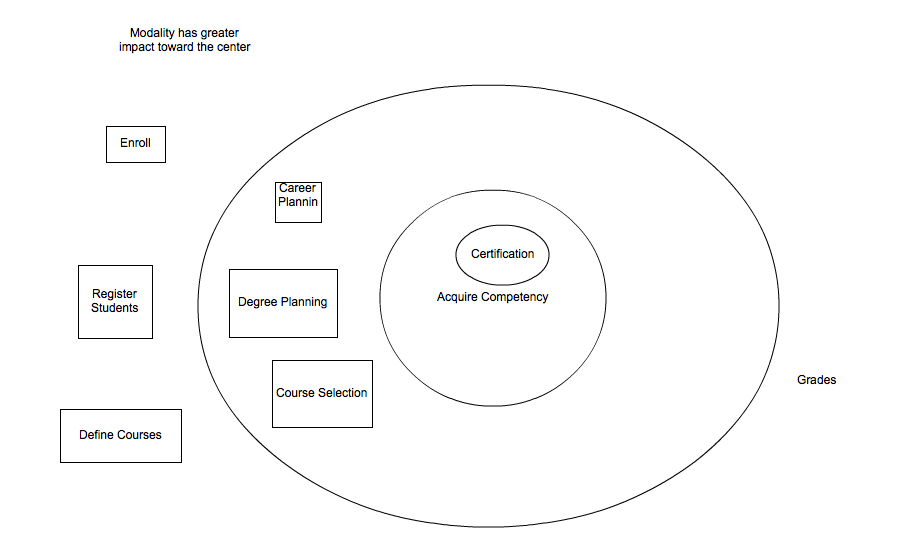Review learner lifecycle.
- Question "subject mastery" Change to "Acquiring Competency (e.g. acquiring competency)" and "Demonstrating Competency"
- Question on "Collaboration" We can think of collaboration as a learner competency. As an instructional capability it can be served by a core service. We could think of collaboration as an important part of the learner experience: a part of tinformal groupings and relationships (networking).
- Engagement/Community
Competencies
Career Planning
- Surveying Interests, Market
- Measuring Aptitude
- Matching Employers (relates to CRM?) (Might belong in "Collaboration" as a networking activity.
- Exploring (student gathers information regarding candidate careers)
- manage events for job fairs. Subscribe
- Understanding what would be required to qualify
- Advising
- Degree Matching
Degree Planning
- Advising (top level -- lifecycle item?)
- Applying for degree program
- Exploring course catelogue to understand options
- macro scheduling
- Market analysis (determine market value)
- Audit progress
Course Selection
- micro Scheduling
- Degree requirements matching
- Degree audit analysis
- Course Shopping
- Evaluating options
- Exploring /Reviewing Info
Information
- Shopping History (Produced),
- Shopping List (Produced)
- Course requirements (consumed)
- Degree requirements (C)
- Transcript (used by degree audit) (C)
- Peer input
- GAP analysis: re Requirements and credits
- Class attributes (c)
- size
- Class average
- Instructor
- Is it team taught
- Does it have a service learning component
- Modality
- Course Catalog (Consumed),
Notes
- Catalog year of admission (when you are admitted into the plan program)
Acquiring Competency
- advising
- attending
- lecture
- lab
- Consuming
- Engaging
- reflecting
- practicing
- Simulating
- Researching (as in doing undergraduate research)
- producing
- collaborating
- self-assessment
- Access Resources
- Curate Resources
Information
- Assignments
- Instructions
- Sources
- Learning objects (to browse) (something that has pedagogical value -- symbolic and concrete. Pedagogical value comes in the context of the inctructor's use. This is an atomic piece that can be composed into bigger learning objects. Object involves metadata including DRM. Modality note: available for re-use
- Mentoring (involves participants and a venue. Modality determines the venue)
- Lecture
- Assessment (formative and sumative): used for self assessment.
- test (C, P)
- Quiz (C,P)
- Rubrics defining competency
- Metrics evaluating competency (perhaps belongs with demonstrating competency)
- Peer reviews, comments
Demonstrating Competency
- Reflecting
- Assessing
- Performing/presenting
- publishing
- Demonstrating
- Demonstrate Equivalence (belong with certification/credentialing)
Information
- Learning object (c)
- Grade (p)
- varying kinds of grades)
- Dissertation, essay, performance
- Exams question C answer P
- Thesis defense - oral review panel
- Rubric
- Definiaiton of competency
- Note: an assessment can be more or less rigorous, more or less personal, more or less fine grained, and covers competency over a shorter or longer life span according to the criteria set up before use. Modality will have an impact on optimal assessment.
Collaboration
- Networking
- Group work
- Create
- Curate
- Communicate
- Share
Certification/Credentialing/Badging
- Acquiring
- obtaining
- displaying
- tracking
- proving that I have the credential, prove that I qualify for the credential
- auditing progress
- Acquire Equivalence (for previous work
Information
- Certificate (Badge, credential, degree, grade)
- issue date
- Policy uri
- Process uri
- expiration date
- issuer
- type
- transcript (P used as input to justify credential) (maybe synonymous with degree progress) (or unofficial transcript or degree progress report)
- Equivelency (P) reference (fmatrixed or ad hoc)
- Credential requirements (C as input) (course requirements are a type of and perhaps part of credential requirements)
- Demonstrated competency (c)
- Rubric (c)
- Learning Outcomes (c)
Manage Events
Finance
Seek Advice
Manage Portfolio
- Create
- Update
- Display
- Provide
- Prove
- Curate Resources
- Repose related resources

